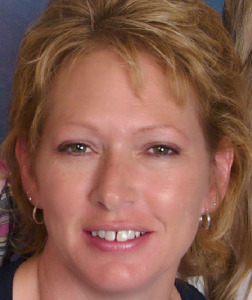Grace Bauer
Grace’s son Corey was 14 years-old when he and two classmates broke into a truck and stole a radio. He was sentenced to a 90-day program at Tallulah Correctional Center in Louisiana. Bauer hoped the program would get him back on track. “Unfortunately,” she says, “that was the biggest mistake I ever made.” The first time Bauer made the 200-mile drive to visit Corey, she saw the footprint of a guard’s boot bruised onto his rib cage. Panicked by her son’s reports of brutal treatment and by a warning she received from a state evaluator that Corey was on the verge of a breakdown, Bauer looked for a lawyer. The first one she found advised her to keep her money; he said that Corey would most likely end up in a state penitentiary when he turned 18 and there was nothing she could do. A capital defense attorney told her that most of the men he met with on Louisiana’s death row had at one point been part of the same juvenile system in which her son was now trapped.
When Corey finally returned home, he participated in community-based programs and earned his high-school diploma and his driver’s license, but Bauer knew her son was in emotional distress. When Corey served out his parole and was judged not to be a risk to himself or others, his mental healthcare slot disappeared. Five years later, Bauer learned that Corey had been raped by another juvenile, while Tallulah guards stood by and took bets on who would “win.” Corey was rearrested at 17, then put back behind bars for a parole violation, spending six years in prison between 2001 and 2010.
In 2001, Bauer attended a meeting of the Juvenile Justice Program of Louisiana in New Orleans – an event that set her on the path from grieving mother to passionate advocate for reform. Working with Petra Fellow Gina Womack, director of Families and Friends of Louisiana’s Incarcerated Children, Bauer set up a second office in Lake Charles, told her story, recruited families, and played a key role in winning sweeping state legislation in 2003.
In 2007, her home destroyed by Hurricane Katrina, Bauer moved with her daughter to Baltimore and went to work for the Campaign for Youth Justice. Soon after, when Corey was able to follow the family north, he was arrested for robbery and given a 12-year sentence. With Corey in prison again, Bauer joined with Zachary Norris, lead architect of the Books not Bars campaign, to launch Justice for Families (J4F) and build a peer-led national network of families with incarcerated children to help shape and strengthen the growing movement for reform.
J4F began by conducting 1,000 interviews and holding 24 focus groups to publish a first-of-its-kind report, uncovering crucial flaws in the system that burden, alienate and exclude families from the treatment of system-involved youth.
Today, 2,000 families strong, J4F has been joined by unions, civil rights and faith-based organizations, academics and government officials, all making the case for disinvestment in a morally and fiscally broken system and reinvestment in community-based support services. In May 2013, U.S. Attorney General Eric Holder assigned his chief of staff to work with J4F and its allies on these efforts. You’d better believe that Grace Bauer will be following up.
